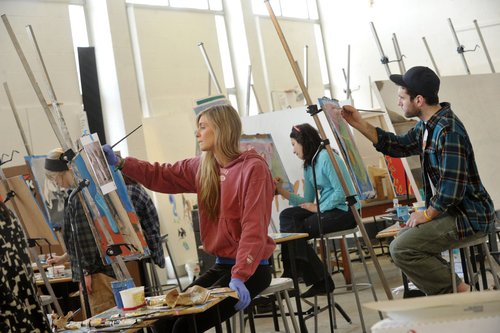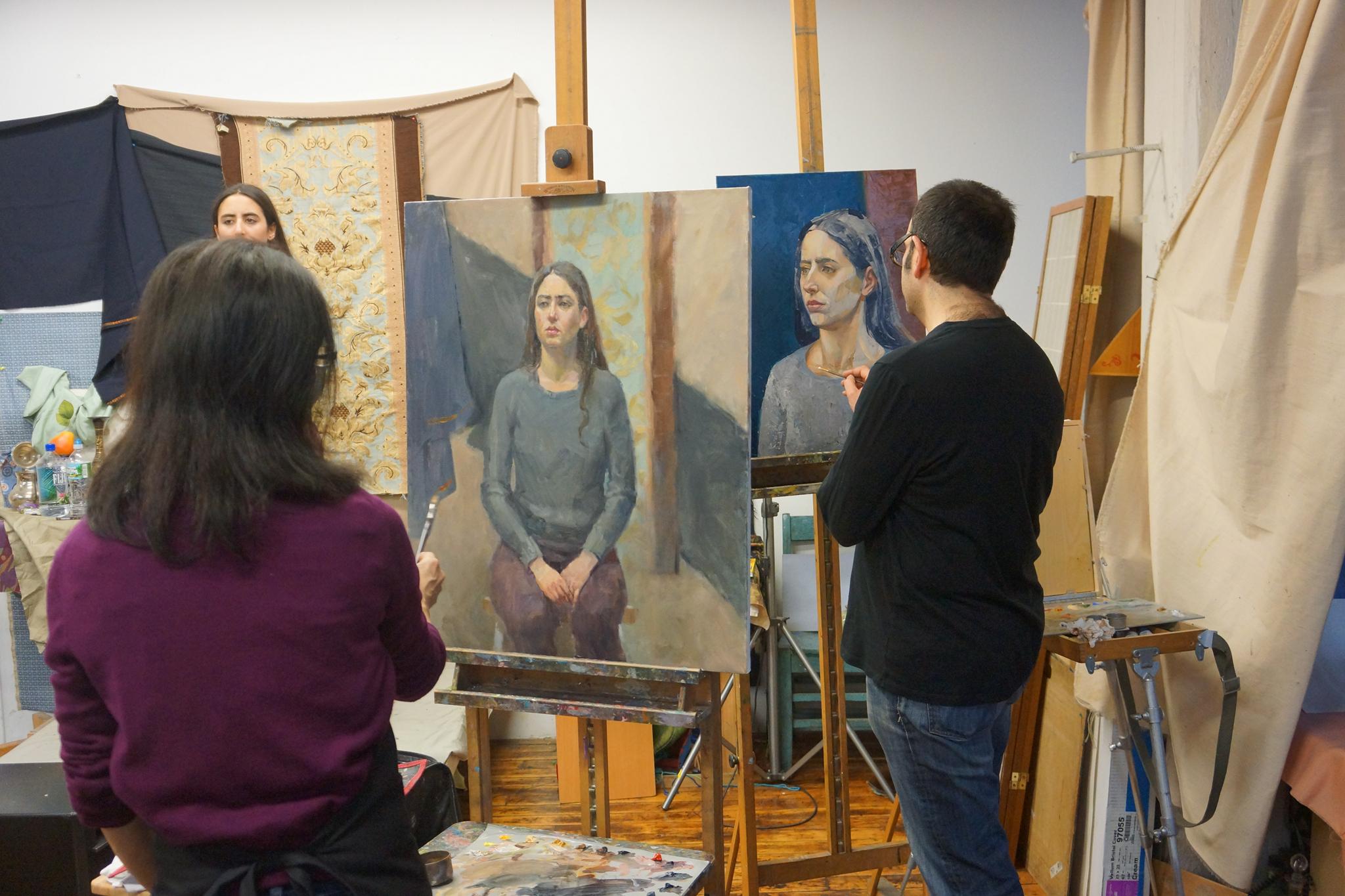How to Succeed in Art Class
Remember, grades are in the eye of the beholder.
By Zephanie Battle, Texas State University
If the old saying that “Those who can’t do, teach” holds any merit, art professors must be the exception.
Talented artists often take positions at universities to provide a consistent income, which means most Fine Arts faculty could fill the Buckingham Palace twice over with their awards. Professors though, long before they were professors, were aspiring artists just like you might be.
But if you’re an art novice like me, then even being called an “aspiring” artist is too generous a term. If you struggle to stay inside the lines of your little sister’s coloring books, then even though your teachers constantly reassure you that all artists start as amateurs, it can be awfully difficult to visualize becoming Picasso.

So, if you’re not yet an artist—and I doubt you’re an art professor reading this—then what are you? Maybe you’re just a beginner and your intro class is your first interaction with anything even remotely artistic; Basic Drawing doesn’t seem very basic when it’s your first time, does it?
In any case, in any art class, you should learn at least one thing: Art is what you make it. For anyone like me though, who has trouble linking the imagery in their head to their final product, actually making beautiful art is a different ball game. No matter how many times you remind yourself to go easy on yourself, you might still be insecure about your skill level, wondering why everyone else seems to be doing well but you.
If you’re having trouble gaining the confidence to take pride in your work, here are some ways I learned to succeed in my art classes without making immaculate finished products.
Ask for Help
My mother always says, “A closed mouth doesn’t get fed.” In other words, if you don’t ask, you won’t receive. Don’t feel bad about needing to get better at something you don’t know much about; if you do, you’ll overwhelm yourself trying to perfect every charcoal drawing you’re assigned. There will be times when you won’t automatically know how to get the lines quite right or the shading how everyone else has it. It doesn’t matter.
You know the girl in class whose artwork you envy? Talk to her about the way she drew that square or why she chose to zoom in on that particular place on the model. Your professor is there, too. Remember their artwork filling Buckingham Palace twice over? They know what they’re doing, so why not take notes from the best?
Don’t Worry About Everyone Else
There will be people in your class who come in knowing more about how to draw than you, and you will likely feel jealous of their talent at some point. The thing is not to compare yourself to them negatively, getting frustrated or saying “My art sucks.” Sure, maybe it does, but how are you prepared to fix it? Keep comparing yourself, but in a positive way. The more you do, the more you learn. No joke.
When you’re looking at the girl’s easel next to you, what is she doing that you aren’t? In a way, you are lucky to be the worst in the class, because it means for you, improvement will come the most easily. Plus, sometimes being an amateur is beneficial.
You bring a fresh perspective to discussions and can prompt breakthroughs in others; you may even have an ability that none of your classmates share.
Take pride in the skill you have before thinking that you have none at all. Run your race with your blinders on. Yes, I am comparing you to a racehorse. A prize-winning racehorse. You’re welcome.
Don’t Give Up
Whether or not you think so, you’re learning something new every time your professor and classmates critique you. You’re doing better than when you first started, and your grades reflect it. But if you obsess over your shortcomings, you will likely decide that failing out is the “best” thing to do. Though it seems like an easy way out, at the end of the day, resignation is worse than failure. You should never let yourself believe that you’re just “not good at art.”
If really feel like you have hit rock bottom, pick yourself up, dust off your shoulders and keep going. You’re not going to be perfect at everything. You might even be the worst, but if you don’t at least try to get better then what you are doing?
Value yourself and your skill, because when you appreciate your gifts, you allow others to see them. In the words of Degas, “Art is not what you see, but what you make others see.”









